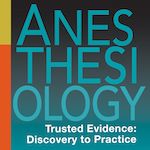 Anesthesia
Anesthesia
Soundproof headphones alleviate orthopedic surgery discomfort

Editor's Note: Soundproof headphones may improve physiological indices and decrease length of stay in the PACU for orthopedic surgery patients under spinal anesthesia, according to a study published January 4 in the Journal of PeriAnesthesia Nursing. Aiming to investigate the effect of wearing soundproof headphones during orthopedic surgery under spinal…
Study: Less-painful propofol alternative non-inferior in general anesthesia induction

Editor's Note: HSK3486 injectable emulsion (ciprofol) is noninferior to propofol in successful induction of general anesthesia, according toa study published December 13 in Anesthesiology. The study also confirmed prior data indicating HSK3486 causes substantially less injection-site pain. The multicenter, randomized (2:1), double-blind, propofol-controlled, phase-4 study evaluated 255 adults undergoing elective surgery…
Administering sedative preoperatively deemed safe for older patients
Editor's Note Researchers conducted the largest randomized study to date on use of the sedative midazolam in older patients, a drug sometimes used to calm patients prior to surgery. The results were published in JAMA Surgery on December 20. Highlights include: The study involved nine German hospitals and included more…
Perioperative management: Top challenges, priorities for OR leaders in 2024, per survey

Staff recruitment and retention is the top priority of OR leaders going into 2024, according to a November/December survey conducted by LeanTaaS in collaboration with OR Manager. Out of 84 respondents (some skipped), while 76% chose staff recruitment and retention, both improving operational efficiency (65%) and sustaining volume (36%) also…
Study: Are clinicians undervaluing patient diagnostic feedback?
Editor’s Note Lending greater weight to patient opinions could help clinicians diagnose certain conditions, according to a study published in Rheumatology on December 18. The study focused specifically on neuropsychiatric lupus, an autoimmune disease that is difficult to diagnose and includes symptoms such as headache, fatigue, and hallucinations that can…
Testing shows promise for automated anesthesia monitoring, delivery system
Editor’s Note A new automated delivery system for anesthesia that has been effectively tested in monkeys could eventually be used by doctors to identify and deliver the right dose of drugs in people. The findings appeared October 31 in PNAS (Proceedings of the National Academy of Sciences of the United…
Postoperative opioid prescriptions falling, but more improvement needed
Editor's Note A new study finds that while opioid prescriptions for postoperative pain relief have continued to decline, that downward trend has slowed since 2020, indicating the need for continued work to right-size opioid prescriptions for surgery patients. The findings were published by JAMA Network on December 7. Researchers looking…
FTC lawsuit challenges private equity medical group ‘Roll-Up’ deals
Editor's Note The Federal Trade Commission (FTC) is squaring off against a private equity-backed anesthesia practice in Texas, HealthNews Florida November 30 reports. This move is being seen as a first step in the agency seeking to challenge the increasing role of private equity in monopolizing medical groups. In September,…
ASCs continue to contend with anesthesia provider shortages, inflating costs
Editor's Note There is a major anesthesia provider shortage that has been and continues to impact ambulatory surgery centers (ASCs), and which is driving up costs, Becker’s ASC Review November 29 reports. Meanwhile, reimbursements from payers are declining, straining ASCs’ ability to provide needed care. Some highlights from the Becker’s…
Researchers look for genetic drivers of postop pain
Editor's Note A new study that attempted to find genetic drivers of postoperative pain uncovered only two associated alleles, suggesting wider examination is needed. The findings were published in the American Society of Anesthesiologists journal Anesthesiology December 2023 issue. The researchers looked at 163 studies and evaluated 129 genes and…

 Free Daily News
Free Daily News